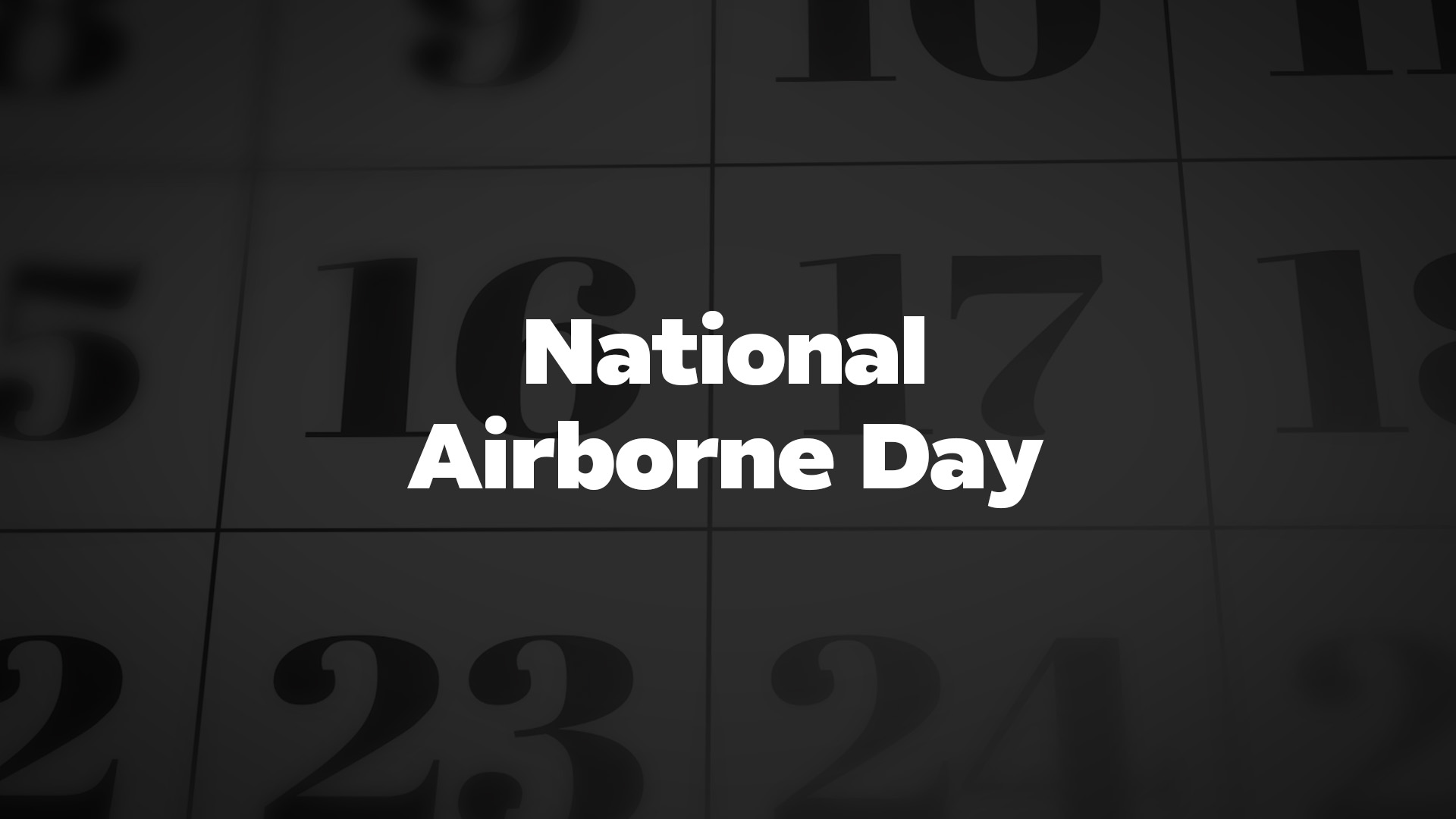National Airborne Day is observed annually on August 16th to honor and recognize the contributions of the United States Airborne Forces. This day is dedicated to paying tribute to the bravery and sacrifices of the paratroopers who have served in various conflicts throughout history. It is also an opportunity to learn about the specialized training and unique capabilities of airborne forces.
#HASHTAGS
#NationalAirborneDay
National Airborne Day is celebrated annually on AUGUST 16th
| Year | Date | Day |
|---|---|---|
| 2023 | August 16 | Wednesday |
| 2024 | August 16 | Friday |
| 2025 | August 16 | Saturday |
| 2026 | August 16 | Sunday |
| 2027 | August 16 | Monday |
| 2028 | August 16 | Wednesday |
| 2029 | August 16 | Thursday |
| 2030 | August 16 | Friday |
| 2031 | August 16 | Saturday |
| 2032 | August 16 | Monday |
| 2033 | August 16 | Tuesday |
| 2034 | August 16 | Wednesday |
| 2035 | August 16 | Thursday |
